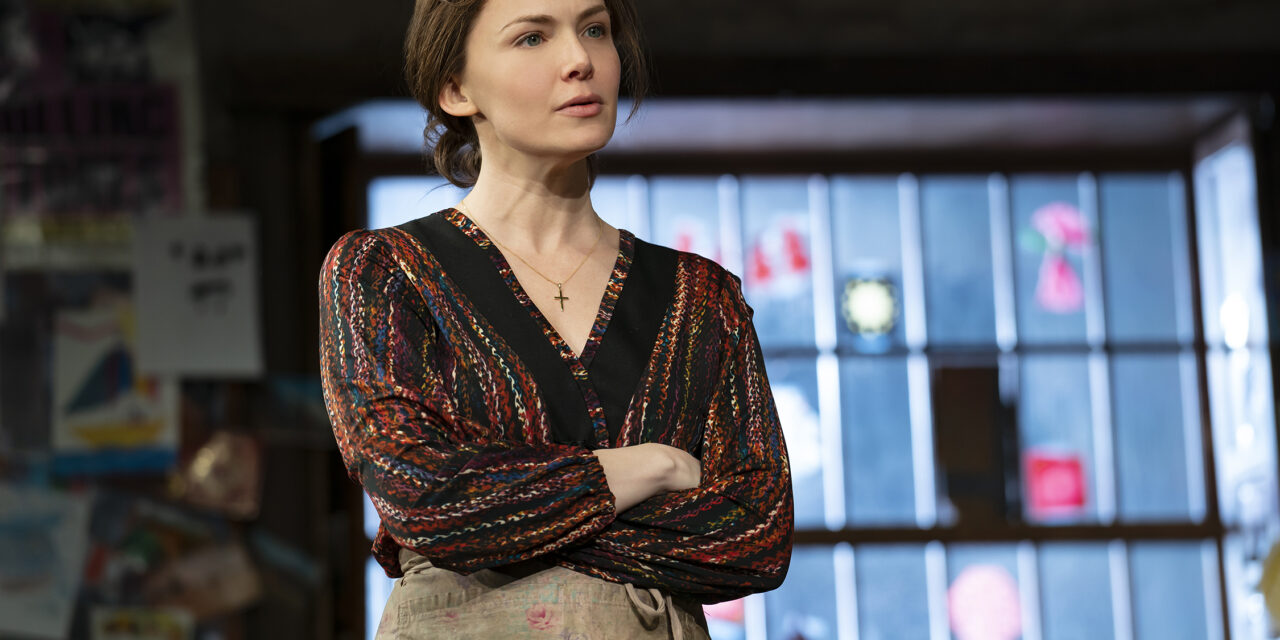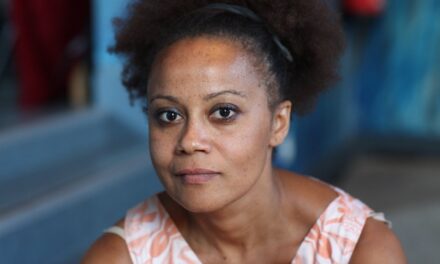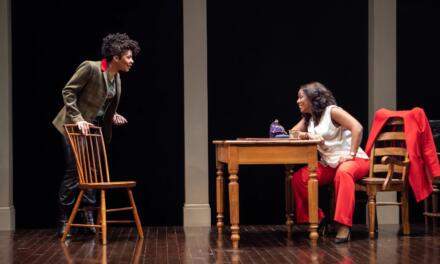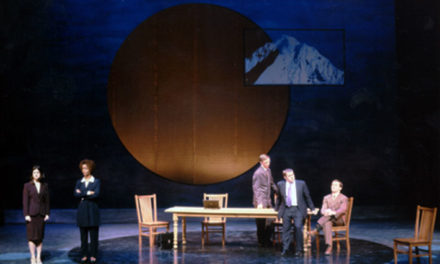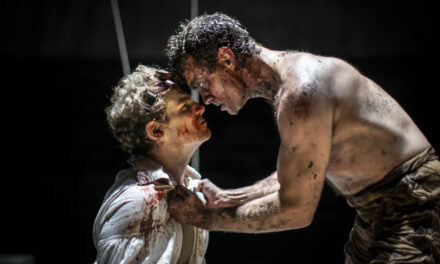Holley Fain is no stranger to Broadway, having appeared in Present Laughter and Harvey in recent years. She has now returned to the stage as Caitlin Carney in The Ferryman, written by playwright Jez Butterworth, replacing Laura Donnelly, whose real-life uncle disappeared from his town in Northern Ireland in 1981 in the wake of Northern Ireland’s Troubles. The play tells the story about the family he left behind whose lives were torn apart by their ties with the IRA.
The Ferryman was recently nominated for nine Tony Awards, including one for best actress for Donnelly, whose real-life experience – discovering her uncle had been “disappeared” by the IRA – actually inspired the play. In the play, directed by Sam Mendes, Fein joins other new female cast members that include Emily Bergl, Ann McDonough, and Julia Nightingale as well as existing cast members Fionnula Flanagan, Ana McDonough, Julia Nightingale, and Dearbhla Molloy. She’s known for her work on Gossip Girl and Grey’s Anatomy and has also appeared on The Good Wife, The Mentalist, and Law & Order.
We talked to Fain about taking over the role as Caitlin Carney in The Ferryman, what it’s like to work with the other women in the show, and her hope to work in more women-led productions in the future.
The Ferryman is now playing at the Bernard B. Jacobs Theatre on Broadway.
How did the role of Caitlin Carney in The Ferryman come to you?
HF: I auditioned for Jim Carnahan (Roundabout Theatre Company’s Director of Artistic Development). I’ve worked with him a lot and have so much appreciation for him. I made a tape and then was flown out and met with Sam and Tim (as in Hoare Associate Director). I got to see the show the night before my audition with Laura Donnelly in the role and was cast the next day.
Were you familiar with Jez Butterworth’s work prior to getting this role?
HF: I had never seen a play of Jez’s, but I’m familiar with his work. So, to be able to see it right before auditioning was a pretty great 24 hours.
What appealed to you about playing this particular role?
HF: These types of roles aren’t written for women very often, but it’s starting to happen more and more. The story of this family, of this woman, was so big and important to me. Jez’s words are also not like anyone else’s, so I was immediately drawn to the play. I’m from a big family in Texas so I understand the kind of love that exists in large families, as well as the passing on of tradition and story. The love from generation to generation is something I am familiar with.
You work with some phenomenal girls and women in the play. Can you talk about what it has been like to work with them?
HF: All the women’s dressing rooms are next to each other. I share a dressing room with Emily Bergl, who plays Mary, and we all have a real love and support for each other. There’s a lot of humor.
It’s a big, emotional play. It’s also another side of things, so it’s important to have that fierce, womanly support. Everyone has been so welcoming and focused on making us feel a part of something that’s been running for a while. It’s kind of incredible to have Fionnula be so generous in that way. Also to have these young girls who are so equally their own powerhouses of talent! It’s amazing.
In general, how important is it to you to work with women?
HF: So important. It feels like such a gift. Our stage manager is also a woman. Jill (Cordle) is incredible. To have that power, force, and support in the theater is really something special.
Do you feel there are more stage roles for women than ever before?
HF: I think so. The new Nathan Lane show (Gary: A Sequel to Titus Andronicus) just opened next door to The Ferryman. It co-stars Kristine Nielsen, who I absolutely adore, and Julie White is also now in the cast. These two women are absolute forces and are getting the kind of work they do so well on Broadway.
It’s interesting because there is a dearth of shows being directed by women on Broadway at the moment.
HF: I was talking with my friend Mia Barron (actress) about this, and she told me how most of her recent theater jobs have all been directed by women and that it’s been a wonderful thing for her. For me, unfortunately, that hasn’t been my experience, but there is still obviously room for that to shift a bit.
What’s it like being back on the Broadway stage?
HF: It’s a thrill. It always is, but it’s been a while since I’ve been on Broadway. I think that Harvey was in 2012, so it’s been a good six or seven years. I live in Los Angeles, and this part of my life is one that I miss a lot. So, any opportunity that I can get to come back, I try to take. This particular play is fulfilling that part of my acting life that I’ve been missing. The play is so brilliant, and this experience has not been like any other I have had in my life.
What did you know about the period of history that is addressed in the play (Northern Ireland’s Troubles)?
HF: I dove into research and documentaries about the hunger strikes. In particular, I watched a beautiful documentary called The Disappeared about the horrible situation the Carney’s are dealing with in the play.
What is your most difficult moment in the show?
HF: That’s a really good question because I have found that everything in this performance is different. There are obviously intense, dramatic moments and they take a toll. The cast is so big, and there are so many moving parts. Sometimes I’ll make eye contact with someone on stage that I haven’t before, and that will unlock or bring something that will affect the next moment. Sometimes that is difficult emotionally.
What kind of roles are you looking for and what are you working on next?
HF: Roles of substance are a real gift in this job. Now that I know that this kind of role exists in The Ferryman and it’s something that I’m able to do, how do you go back from that? It would be difficult to do something that doesn’t feel as satisfying as this. This role has set a high bar. I’m hoping to carry it with me in the next job that I do.
This post was written by the author in their personal capacity.The opinions expressed in this article are the author’s own and do not reflect the view of The Theatre Times, their staff or collaborators.
This post was written by Holly Rosen Fink.
The views expressed here belong to the author and do not necessarily reflect our views and opinions.

